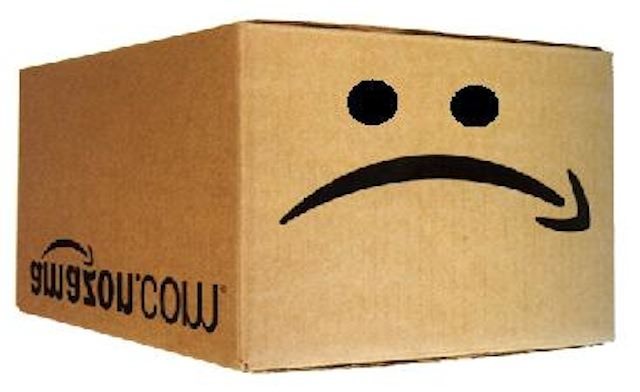 Hugh Howey has an interesting perspective on some of the changes Amazon has been making lately. It starts with a great post Nate Hoffelder made over at The Digital Reader: Amazon has abruptly decided to pull its affiliate program membership from a number of e-book discovery sites due to long-standing terms-of-service violations that it’s only just decided to take notice of.
Hugh Howey has an interesting perspective on some of the changes Amazon has been making lately. It starts with a great post Nate Hoffelder made over at The Digital Reader: Amazon has abruptly decided to pull its affiliate program membership from a number of e-book discovery sites due to long-standing terms-of-service violations that it’s only just decided to take notice of.
Sites like Pixel of Ink (and BookBub, though BookBub apparently hasn’t had its affiliation yanked yet) make a lot of money on Amazon affiliate buys via including their affiliate link in the URLs in their email blasts of e-book promotions. However, it’s the same old story we’ve seen in cutthroat markets again and again: the incumbent embraces and extends a program someone else had been offering, and then does whatever it can to cut off that someone else. So it is for Amazon, which now has its own e-book discovery and promotion service, Goodreads Deals.
Howey notes that, even though Amazon makes a lot of money from those email blasts, it seems likely Amazon wants to rake in more promotional dollars from publishers—the same dollars publishers spend making sure that brick-and-mortar bookstore chains give prime display space to their books. Amazon already limited the number of free books its affiliate partners could promote, in 2013, and now it’s doing the same for discounted books.
The reason, Howey believes, has to do with the way Amazon is always playing cat-and-mouse with those who would exploit its algorithms—be it the people who include links to the end of their e-books to game Kindle Unlimited, or via some other means. Amazon wants its reviews, bestseller lists, and also-bought recommendations to reflect the way customers actually do buy and read books, to keep readers happy and buying from Amazon.
Incidentally, this is where I think Amazon destroyed Barnes & Nobles’ attempts to sell online. Barnes & Noble neglected their reader reviews (which turned into some weird commenting game played by teens. No, really), and they tried to control their bestseller list. Which meant that more readers were finding what people were actually enjoying reading over at Amazon, leading to an erosion of reader engagement at B&N. This was greatly exacerbated by a terrible search engine at B&N.
So, for Amazon, it’s all about reducing the amount of influence and control external services have over Amazon’s bestseller lists. Sites like Pixel of Ink represent outside influences on Amazon’s lists, so they have to go.
Nate himself is a little skeptical of Howey’s take. He notes that Amazon already does accept the same co-op merchandising payments as Barnes & Noble and other physical stores, and has for some time. (In fact, that was part of the reason behind recent contract spats with the Big Six publishers and Hachette in particular.) it also “games” its own best-seller lists by giving away free copies of the books it publishes itself in a given month.
I think it’s worth noting, though, that in those cases it’s Amazon doing the gaming—it’s not letting someone else stick their fingers into the pie. It might well be that what’s a no-no to let someone else do is perfectly fine to do yourself if you’re Amazon.
Whether it’s all about the user experience, or just having more control over what books it sells, it seems clear Amazon isn’t afraid to torpedo competitors—whether to itself, or to new services it chooses to offer. And because Amazon has become so powerful, it has that much more control over what everybody else does.
Right about now is when it would be good if Amazon had some actual competition—any real competition at all. If services and customers had a real alternative to turn to, it might make Amazon play nicer. But who knows; if Amazon continues along the path it’s currently on, maybe it will inspire some sooner or later.




























